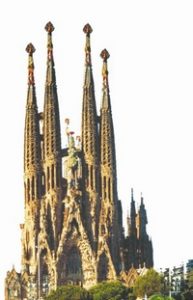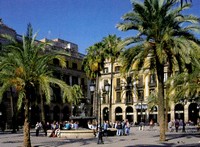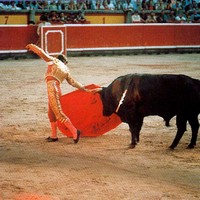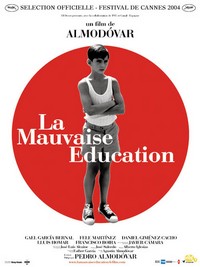Receive our newsletter
Your e-mail address is only used to send you our newsletter and information about the activities of Strasbourg Europe. You can always use the unsubscribe link included in the newsletter.


As Spain’s second city in terms of its population and economic activity, Barcelona is one of the leading urban centres of Catalonia and of Spain as a whole. Founded more than 2,000 years ago, the city is home to countless riches dating back to Roman times, including the remains of the wall which once encircled the town, the temple of Augustus, the necropolis, and the architectural features to be seen in the basement of the town’s History Museum. The port of Barcelona is a genuine economic powerhouse. As a major hub for foreign trade, it has made Barcelona an important European trading center. Barcelona is also a leading tourist destination. Its cultural and architectural heritage (including the church of the Sagrada Familia, the medieval district of Barrio Gotico, the Pedralbes Monastery, the Royal Palace, the Picasso Museum, the Juan Miro foundation and the town’s History Museum) regularly attracts tourists from all over the world. Considered to be one of the finest Mediterranean towns, Barcelona is characterized by a charm and a dynamism unique of its kind.
Plaza del Rey, Barcelona © Tourist Office of Spain
 A tradition dating back several centuries, the Spanish “Corrida” (bullfight) is one of the country’s best known popular customs. These fights, which set the bravery of the bull against the courage of the matador, have become extremely popular in Mediterranean Europe. The art of bullfighting, which first appeared during the 11th century, must be practiced according to clearly defined rules. The show takes place in three phases known as “Tercios”, during which the matador engages in face-to-face combat with the animal. Other forms of corrida have also appeared. The famous bull run in the town centre, the “encierro”, is without a doubt one of the most spectacular Spanish festivals. The event involves running in front of the bull for as long as possible and getting as close as possible to the animal. This has led to the Spanish corrida becoming well known far outside the borders of Spain, just like the horseback corrida, the “rejoneada”, an ancient activity which is still practiced today.
A tradition dating back several centuries, the Spanish “Corrida” (bullfight) is one of the country’s best known popular customs. These fights, which set the bravery of the bull against the courage of the matador, have become extremely popular in Mediterranean Europe. The art of bullfighting, which first appeared during the 11th century, must be practiced according to clearly defined rules. The show takes place in three phases known as “Tercios”, during which the matador engages in face-to-face combat with the animal. Other forms of corrida have also appeared. The famous bull run in the town centre, the “encierro”, is without a doubt one of the most spectacular Spanish festivals. The event involves running in front of the bull for as long as possible and getting as close as possible to the animal. This has led to the Spanish corrida becoming well known far outside the borders of Spain, just like the horseback corrida, the “rejoneada”, an ancient activity which is still practiced today.

© AS Communication
Your e-mail address is only used to send you our newsletter and information about the activities of Strasbourg Europe. You can always use the unsubscribe link included in the newsletter.
Information Center
on the European Institutions (CIIE)
Europe Direct Information Center
All rights reserved to the CIIE
Non-profit organization
Mailing address
1 allée Kastner
67000 Strasbourg
France
Visitors entrance
8 rue Boecklin
67000 Strasbourg
France
To provide the best experiences, we use technologies such as cookies to store and/or access device information. Consenting to these technologies will allow us to process data such as browsing behavior or unique IDs on this site. Failure to consent or withdrawing consent may adversely affect certain features and functions.
Europe Direct network
The CIIE team
Contact information and opening hours
Lieu d’Europe
The CIIE offices
Contact us
CIIE’s Documentation Centre & Publications
School presentations & Activities
Borrowing of learning material
Activities for the general public
Institutions of the European Union in Strasbourg
Institutions Under the Authority of the Council of Europe
Other European Organisations in Strasbourg
Sessions of the European institutions in Strasbourg
Visiting the institutions
Map of the European district of Strasbourg
Institutions in Strasbourg in photos
Discover artistic Europe
National holidays of the member states of the Council of Europe